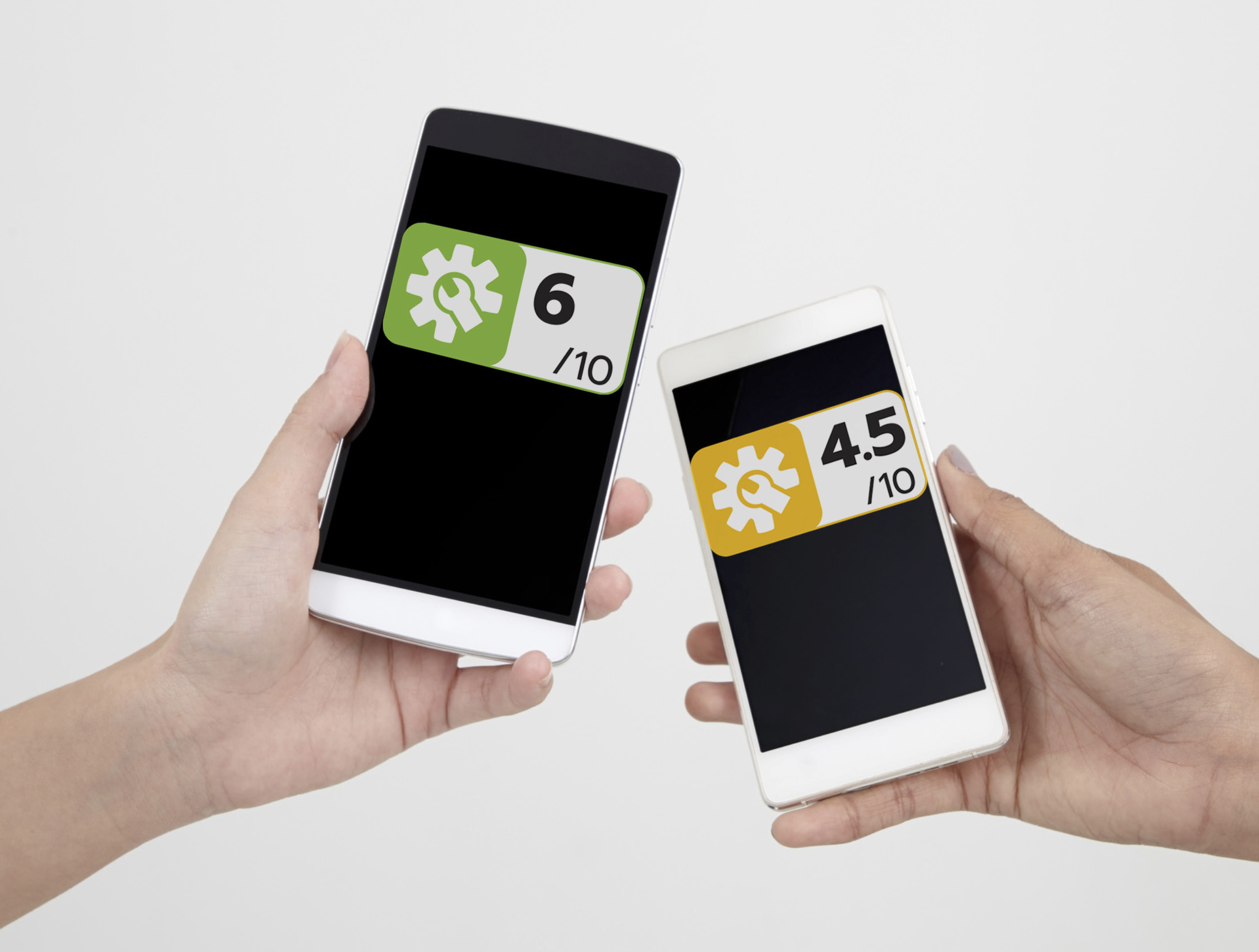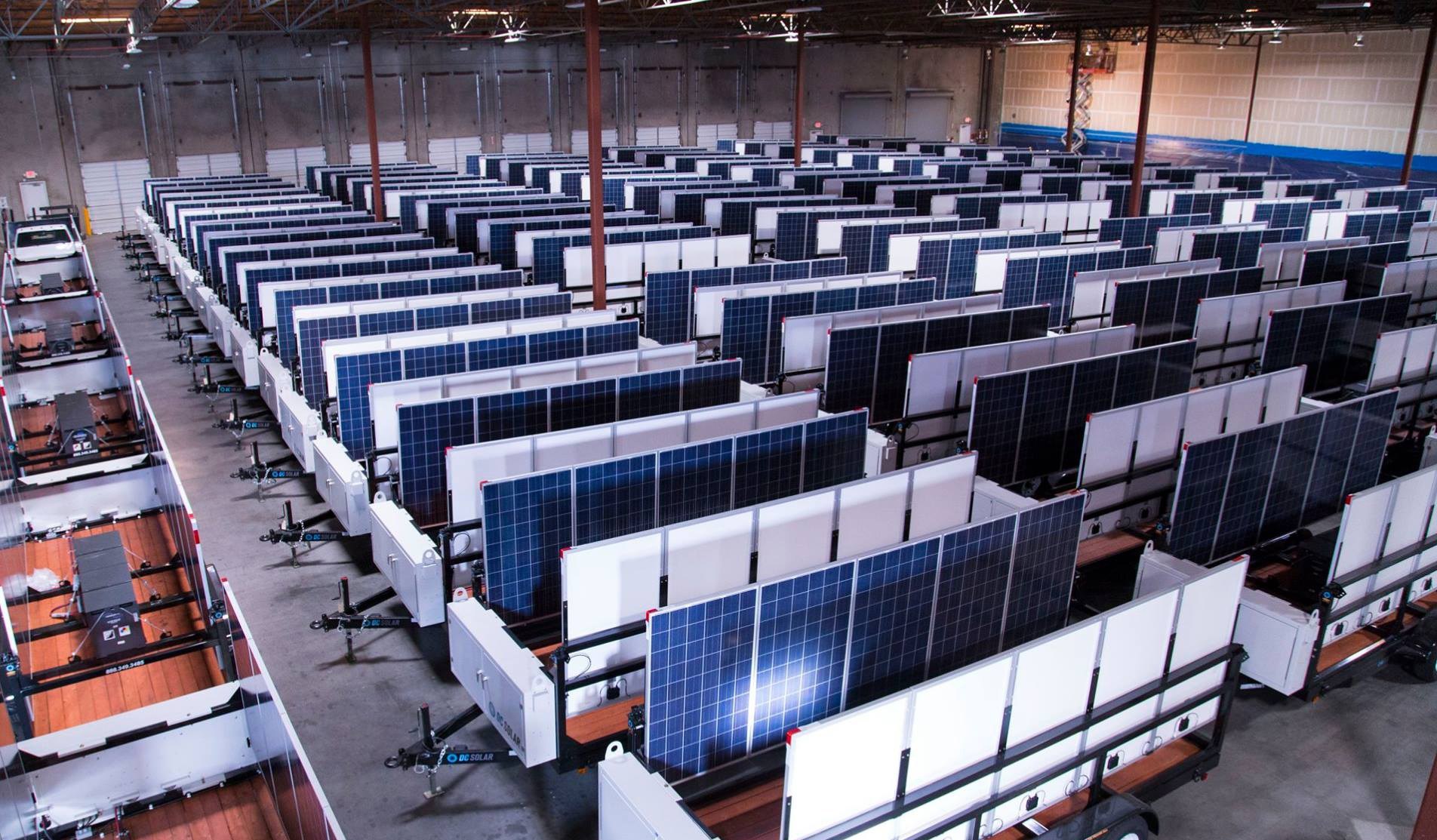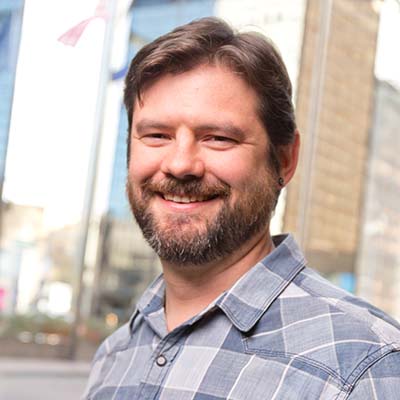
Recycled batteries and junked trailers helping treat COVID-19
Electronics recycler Eric Lungren is donating light towers to help hospitals treat patients in emergency triage facilities.
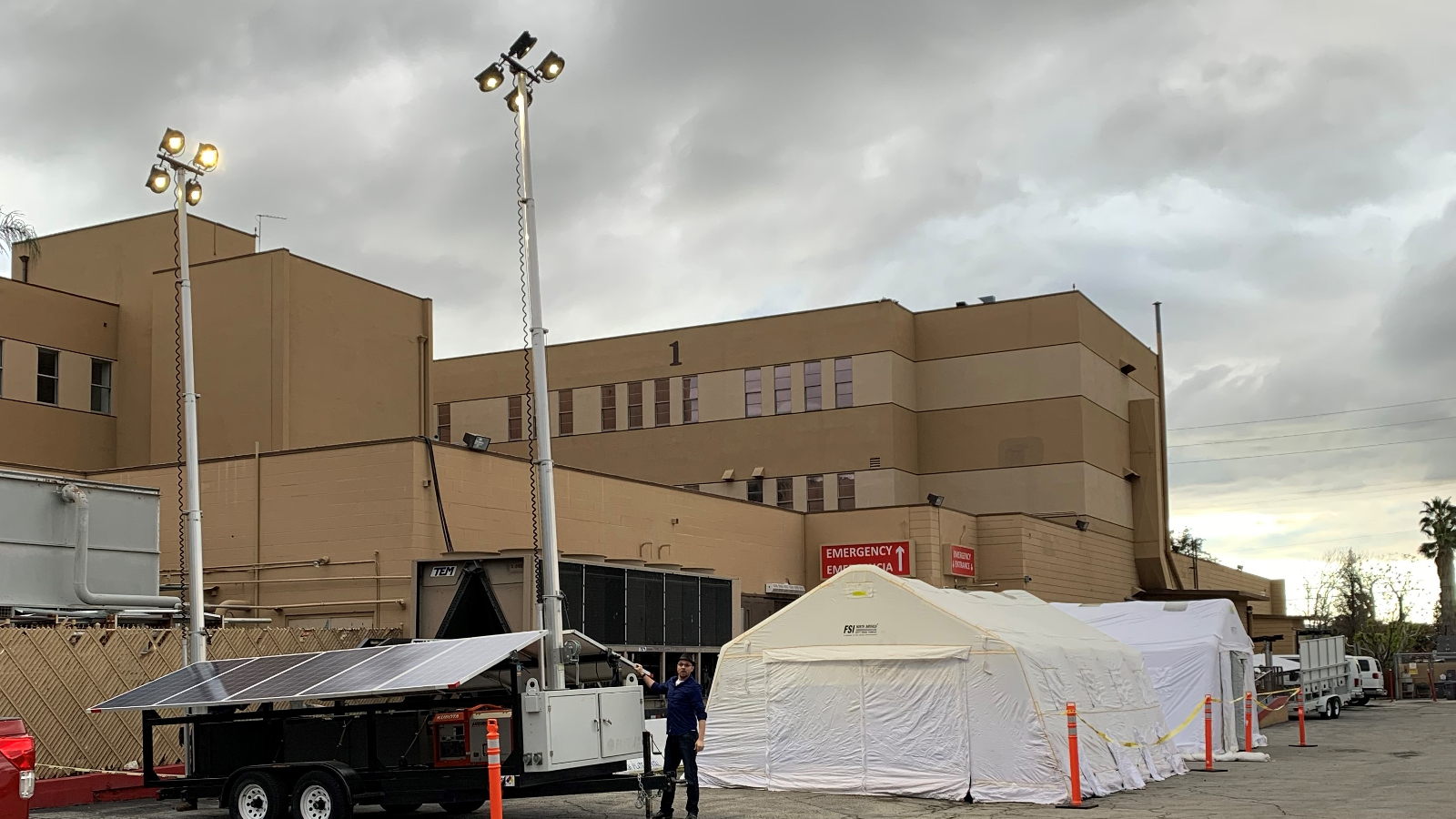
The coronavirus pandemic has irrevocably changed lives everywhere in the United States, but perhaps no place so much as Los Angeles. The 40,000 cases and nearly 2,000 deaths already in Los Angeles County are more cases than in 40 states and more deaths than in 39. Against that backdrop, in the parking lot of Keck Medicine of USC, doctors and nurses staff an emergency triage tent, aimed at helping test possible COVID-19 patients before they enter the hospital.
Twenty-four hours a day, every day, these triage tents limit how many people are exposed to the coronavirus; they are a critical part of keeping hospital staff and patients safe during the pandemic. At night, portable light towers charged by solar panels and equipped with lithium-ion battery packs shine light on this makeshift tent facility.
Trailers with power outputs provide electricity into the triage tents. But those trailers don’t look like other power generators you’ve seen before, they don’t burn fuel, and they’re not draining the hospital’s finances. They’re made from recycled materials, and electronic waste entrepreneur Eric Lundgren’s new company Big Battery is providing them for free.
One person’s junk, another person’s lifeline
Lundgren has a unique talent for seeing value where others overlook it. On a visit to California State University, Northridge, Eric saw a few dozen solar- powered, light tower trailers.
“I asked, ‘What are those?’ and was told that they were leased, but they couldn’t be used because they were broken and the company that made them went out of business,” recalls Eric.
As it turns out, those trailers, equipped with solar panels and battery packs, were built to be remote power and light stations, but the company that built them, DC Solar, had gone bankrupt. In fact, the company’s previous owners have pleaded guilty to running the company as a Ponzi scheme, and now face extended prison sentences.
Eric saw more than a broken product, produced by an even more broken company — he saw an opportunity. Soon after that, he contacted the investors sorting through the remains of the company and purchased 242 of the trailers.
“Just the logistics of getting the trailers to L.A. cost $250,000,” Eric recalls. The trailers were sent to Los Angeles, and slowly retrofitted. Those fixes included his team replacing heavy and inefficient lead-acid battery packs, with, well… junk. Lithium-ion battery packs made out of electronic waste from broken or destroyed electric vehicles.
Eric’s new venture, Big Battery, takes lithium-ion power cells from discarded devices and packages the usable cells into new powerpacks. From e-scooters to electric cars, most of the time, when a battery-powered device needs new battery packs, a portion of the remaining cells can still be used. By testing all the cells that make up larger batteries, Big Battery can create refurbished battery packs for a number of products, including portable solar-powered light and auxiliary power trailers.
Despite being reclaimed from the waste stream, these recycled battery packs have seven times the power capacity of the lead-acid battery. And, these trailers are also a fraction of the cost of the originals sold by DC Solar.
Seven times the capacity, one-fifth the cost, “that’s hybrid recycling for you,” says Eric. Taking broken, unwanted trailers and loading them with power cells made from waste, “taking garbage and putting garbage on them … that’s cool to me.”
Recycling more than old electronics
Eric is most well known for his high-profile battle with Microsoft that ended with him spending 13 months in prison for duplicating free-to-download Microsoft restore discs. Eric says he was just trying to help keep old computers working, in order to minimize e-waste.
At the time, U.S. PIRG called for Microsoft to publicly apologize over the incident, and delivered 11,000+ signatures to Microsoft executives calling for a change in their treatment of electronics recyclers.
Now, Lundgren has put his time in prison behind him and is back to recycling electronics. He’s also “helping rebuild lives” by hiring both people coming out of incarceration and veterans to work at his Chatsworth, Calif., facility to recycle batteries and refurbish them into new products.
“There is abundance in efficiency,” Eric says. And at a time when hospitals across the United States — and especially in the Los Angeles area — need the utmost efficiency, Eric’s contributions could offer aid to our medical workers, tasked with saving an abundant number of lives.

Topics
Authors
Nathan Proctor
Senior Director, Campaign for the Right to Repair, PIRG
Nathan leads U.S. PIRG’s Right to Repair campaign, working to pass legislation that will prevent companies from blocking consumers’ ability to fix their own electronics. Nathan lives in Arlington, Massachusetts, with his wife and two children.
Find Out More
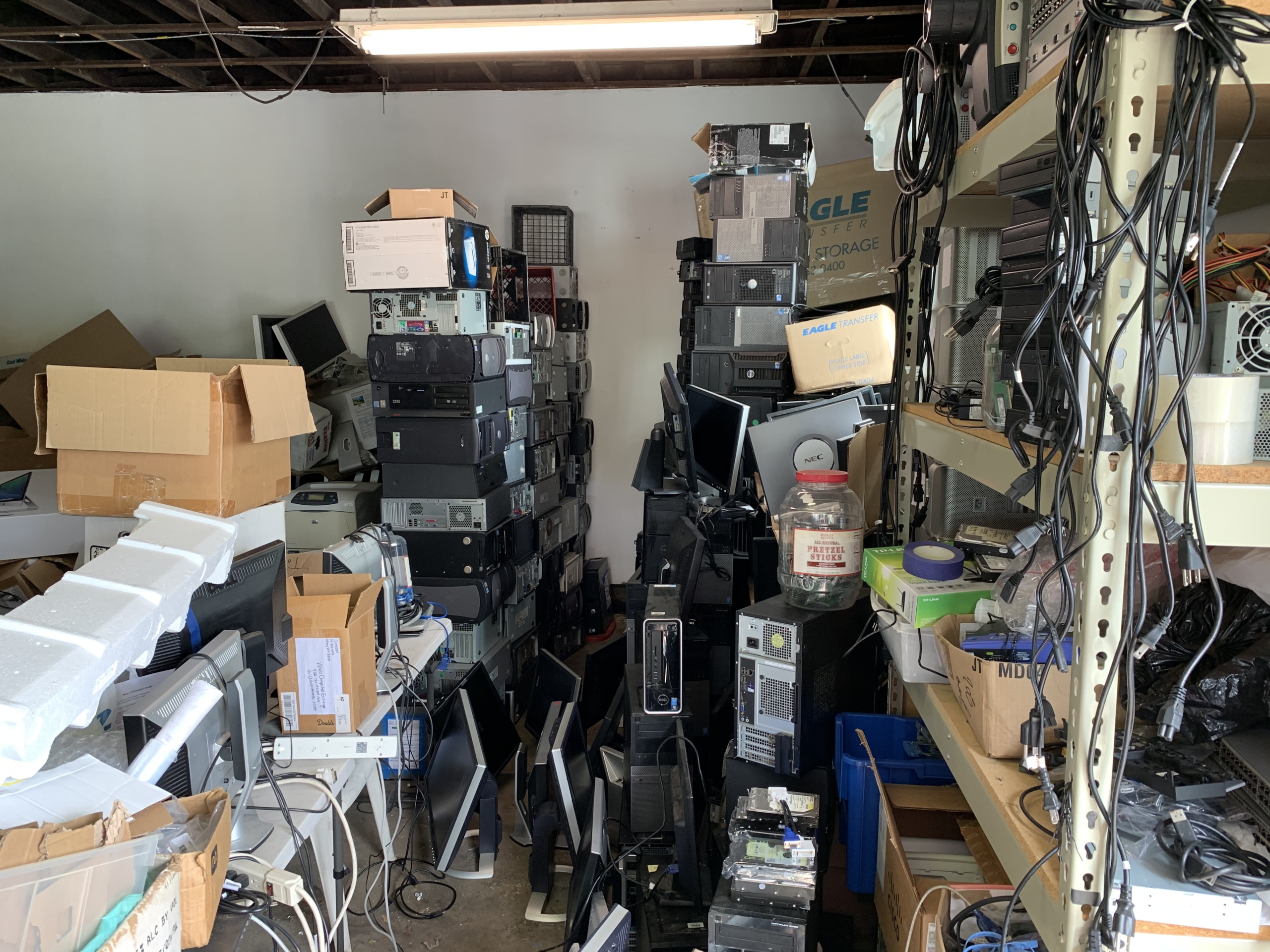
Why do we toss working devices?
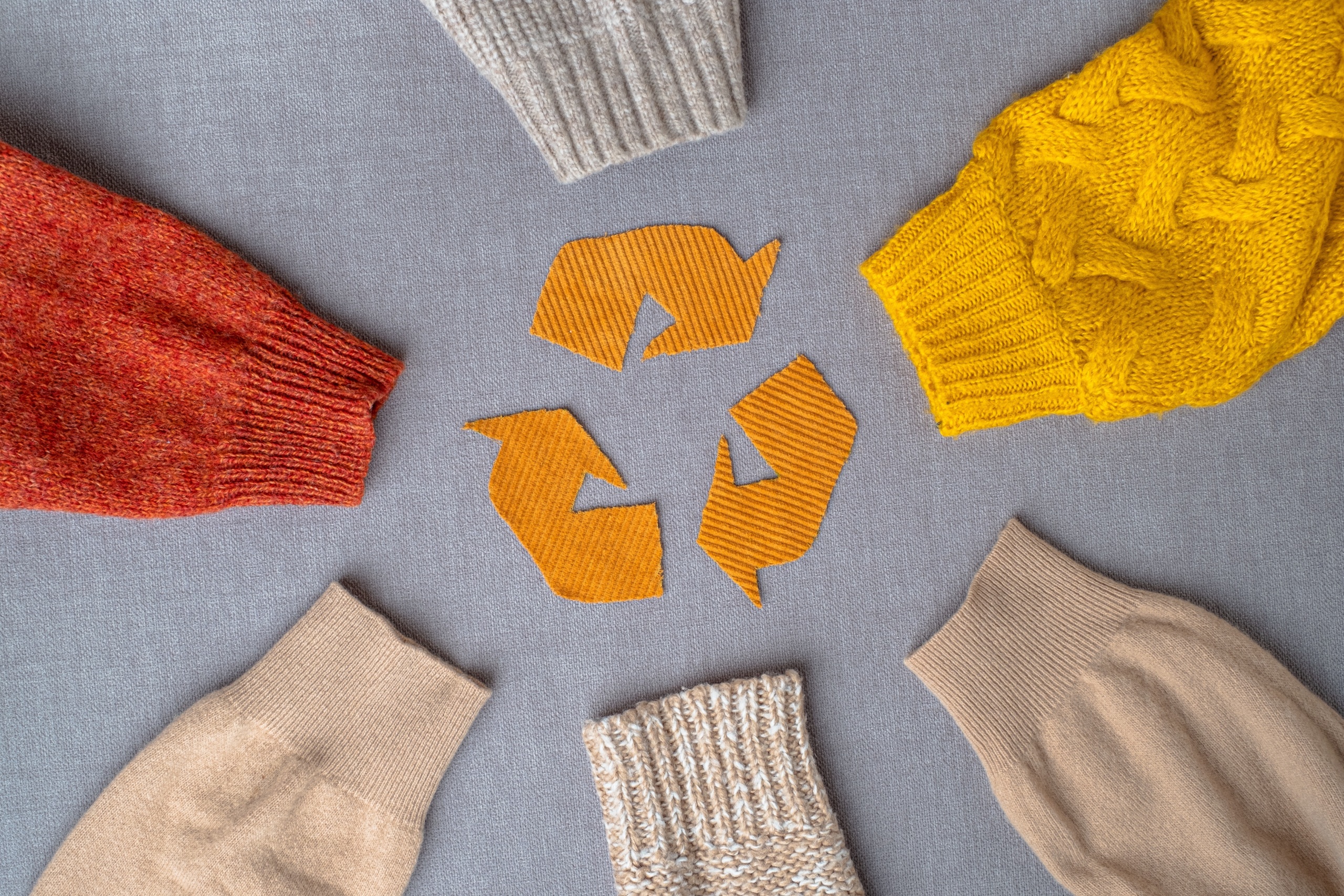
Voices for Sustainable Fashion
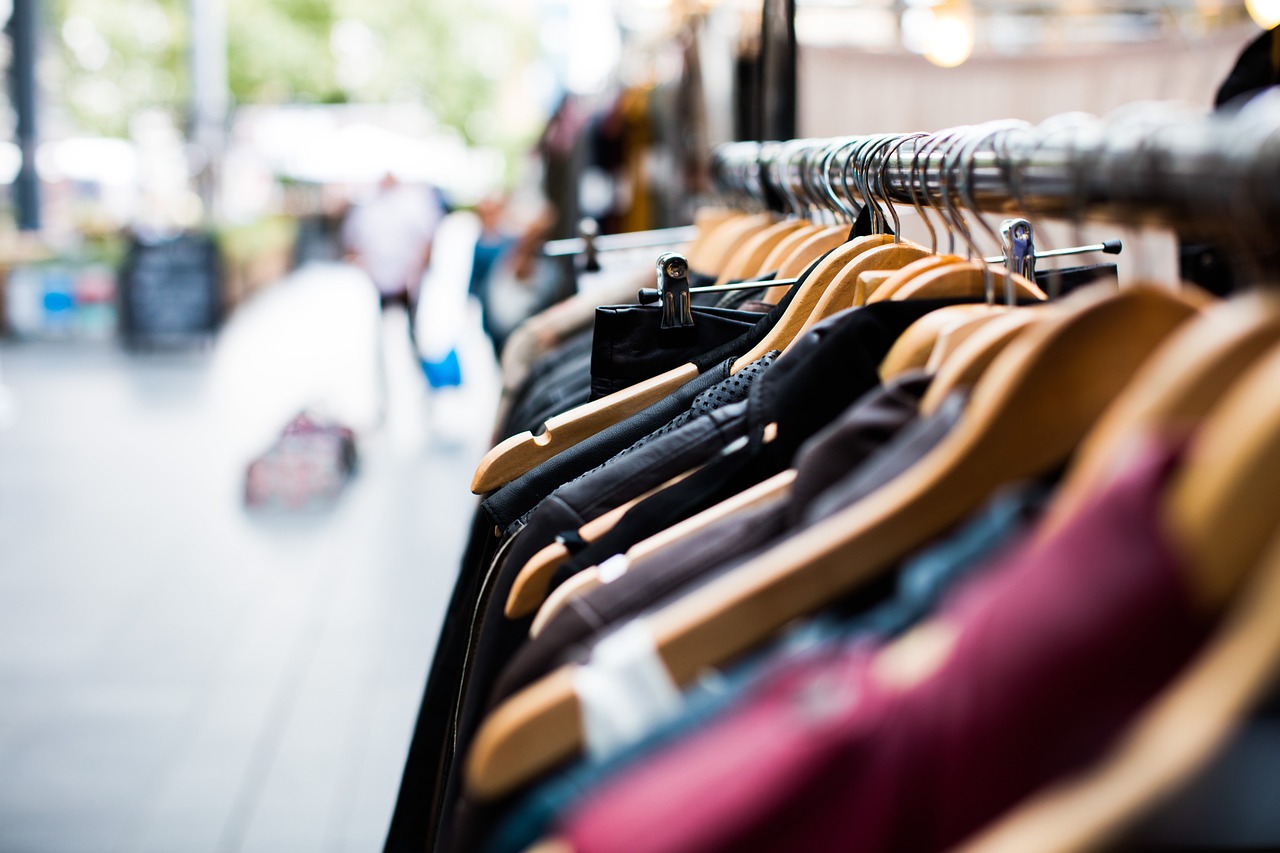
Most of our clothes are made from fossil fuels: Here’s why that’s a problem
